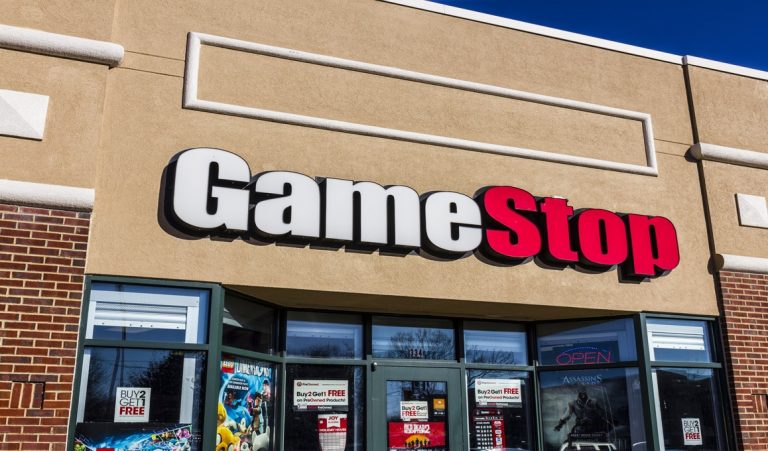
GameStop confirmed that it purchased 4,710 Bitcoin, valued at approximately $500–$513 million, marking its first crypto investment. The move followed a March announcement to include Bitcoin as a treasury reserve asset, funded partly by a $1.5 billion convertible notes offering. CEO Ryan Cohen emphasized Bitcoin’s potential as a hedge against currency devaluation. However, GameStop’s stock fell 10–23% after the announcement, reflecting investor concerns about crypto volatility.
The purchase aligns with a trend among companies like MicroStrategy, with GameStop holding the 11th-largest corporate Bitcoin stash. GameStop’s $500 million Bitcoin purchase has significant implications, reflecting both strategic financial moves and broader market divides. GameStop’s move mirrors strategies by companies like MicroStrategy and Tesla, using Bitcoin as a treasury reserve to protect against fiat currency devaluation, especially amid persistent inflation concerns (U.S. inflation was 3.1% in Q1 2025, per recent data).
Bitcoin’s volatility (e.g., 40% price swings in 2024) introduces financial risk. A sharp drop could impact GameStop’s balance sheet, potentially affecting its $4.5 billion market cap (as of June 2025). The purchase signals confidence in Bitcoin’s long-term value, aligning GameStop with a tech-forward, speculative investor base, but it may alienate traditional investors wary of crypto’s unpredictability.
Register for Tekedia Mini-MBA edition 19 (Feb 9 – May 2, 2026).
Register for Tekedia AI in Business Masterclass.
Join Tekedia Capital Syndicate and co-invest in great global startups.
Register for Tekedia AI Lab.
The 10–23% stock drop post-announcement (May 28, 2025) reflects investor skepticism. Retail investors on platforms like X praised the move, while institutional investors expressed concerns over governance and risk management. GameStop’s decision aligns with its meme-stock community’s pro-crypto sentiment, potentially strengthening loyalty among retail investors but risking further volatility in its stock (GME traded at ~$30–$35 in early June 2025).
GameStop’s purchase, making it the 11th-largest corporate Bitcoin holder, may encourage other firms to follow suit, legitimizing Bitcoin as a corporate asset. This could drive Bitcoin’s price, which hovered around $100,000–$106,000 post-purchase. Increased corporate adoption may attract stricter oversight, especially as global regulators (e.g., SEC, ECB) debate crypto’s role in financial systems. The U.S. lacks clear crypto accounting standards, complicating GameStop’s reporting.
GameStop’s move positions it as a forward-thinking, tech-savvy retailer, potentially appealing to younger, crypto-native customers. However, it risks diluting focus on its core gaming business, which reported flat Q1 2025 revenue. Tying up $500 million in Bitcoin reduces cash reserves for operational investments or debt repayment ($600 million in convertible notes due 2027).
Retail investors on X and crypto enthusiasts view this as a bold, visionary move. They argue Bitcoin’s finite supply (21 million cap) and historical returns (10-year CAGR of ~100%) make it a superior store of value compared to fiat. This group anticipates Bitcoin’s price rising to $150,000–$200,000 by 2026, potentially boosting GameStop’s balance sheet and stock value.
Institutional investors and analysts, as seen in reports from Seeking Alpha and Bloomberg, argue the purchase is reckless. They cite Bitcoin’s volatility (e.g., 20% drop in Q4 2024) and lack of intrinsic value as risks to shareholder value. Critics worry about governance, noting CEO Ryan Cohen’s unilateral push without clear shareholder approval. They also highlight opportunity costs, as $500 million could fund store renovations or e-commerce expansion.
The stock’s 10–23% drop reflects this skepticism, with some hedge funds reportedly shorting GME, expecting further declines if Bitcoin crashes. Some analysts, like those from JPMorgan, view the move as experimental but not catastrophic, given GameStop’s $1.2 billion cash reserves (post-purchase). They note it diversifies assets but caution against overexposure.
Regulators may scrutinize GameStop’s accounting, as U.S. GAAP treats Bitcoin as an intangible asset, requiring impairment tests if prices fall, potentially hitting earnings. Pro-Bitcoin retail investors see crypto as a rebellion against centralized finance, while skeptics prioritize stability and traditional metrics like EPS and free cash flow. Retail investors, often younger, embrace Bitcoin’s volatility, while institutions prefer predictable returns.
GameStop’s Bitcoin purchase is a high-stakes bet that strengthens its appeal to retail investors and crypto enthusiasts but risks alienating traditional shareholders and inviting regulatory hurdles. The divide reflects broader tensions between decentralized finance advocates and conventional markets. If Bitcoin sustains its ~$100,000 price or climbs, GameStop could see balance sheet gains; if it crashes (e.g., to $50,000, as seen in 2022), the company faces financial and reputational damage.



